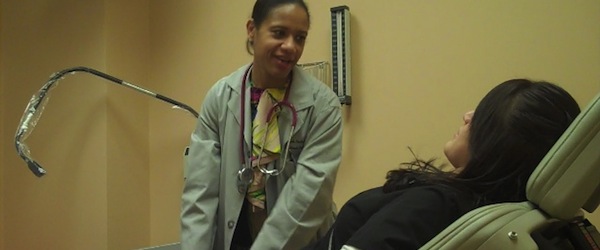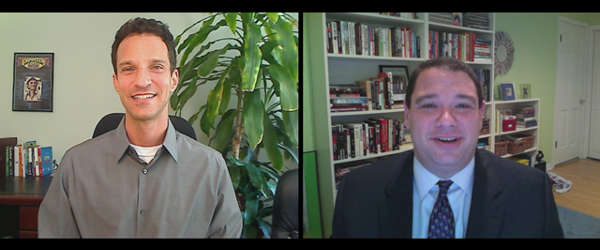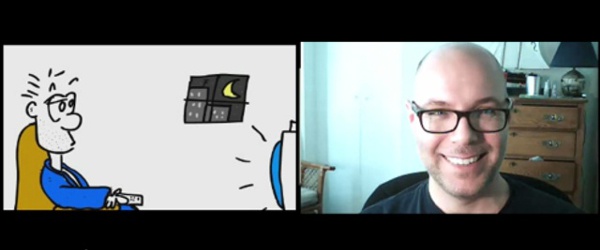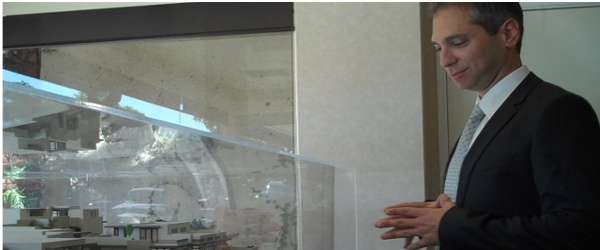Musician Jobs
Session musician and professional cellist Cameron Stone has gone from the USC School of Music to his dream job playing with the biggest names in the music business: everyone from Green Day and Guns N’ Roses to Dr. Dre, Depeche Mode and Whitney Houston. Today Cameron tells us what music careers are like and he provides career advice for musicians.
SHORT VERSION (Full Episode down below)
|
RELATED CAREERS |
Today’s Guest
 Cameron Stone: Professional cellist
Cameron Stone: Professional cellist
College Major: Music
College: USC in Los Angeles, CA
High School: Franklin High School in Los Angeles, CA
First Job Ever: Janitor in a music school
Worst Job Ever: Repo man
Music Careers
If musician jobs interest you and you’re looking to have a music career as a professional musician or even if you’re just a music geek like me and you’re interested in knowing how things work behind-the-scenes in the music business, you’ll enjoy this interview. Cameron shares tons of information on how to get music gigs, how to be a session musician, how to get and keep music clients, musician salaries, the realities of the daily life of a professional musician, how to be entrepreneurial and find your niche, as well as the importance of school, practice, diversifying your income, and managing your finances.
FULL EPISODE: MUSICIAN JOBS
For our Audio Podcast: Careers Out There on iTunes
TRANSCRIPT OF INTERVIEW
Cameron. I really appreciate it.
Guest Cameron Stone: Thanks man.
Marc Luber: So, with so many careers out there, I have to ask you, as a musician, there are still other things you could have done professionally. What made you choose to be a professional cellist?
Guest Cameron: You know, I had no choice. My mom started me when I was 3, and I just kept it up. I kept it up through college. I actually got a scholarship to college playing cello. And before I knew it, I was making money playing. Most people work and they make money.
Luber: So when did you know?
Guest: I don’t think I knew until I was actually putting more money into a banking account than I was taking out, and I thought “wow – I’m making a living playing the cello”:.
Luber: Was there a point where you thought you’d have to do something else?
Guest: Yes. Trying to pay off some of USC, I was a repo man for a while, I worked with my brother for a while framing houses. Not too good for the hands….but you do what you can to turn a buck. Fortunately, I turn a buck playing the cello now.
Luber: That’s amazing. I named a few of the projects but tell us some of the things you’ve worked on and what exactly it is that you do – what does that mean, professional cellist?
Guest: I make a lot of noise from things on dog food commercials to Green Day records, I worked with Andrea Bocelli this year, Brian Wilson from the Beach Boys, a couple projects for Dr. Dre, a couple of young guys from American Idol, tons of fun stuff – played with Whitney Houston on the American Music Awards, fun things. A lot of artists you wouldn’t know too – people who are doing their soul project – the project they’ve always wanted to do and you’ll probably never hear their record but it’s still fun. All sorts of different music. I’m very lucky.
Luber: What’s a typical day for someone who does what you’re doing?
Guest: A typical day for me is I love to get up early and play tennis. That gets my blood going, because the rest of my day as a cellist I’m sitting down. Typical day – today I did 4 Visa commercials – winter themed, holiday themed Visa commercials. Later today I’m working on a project that’s coming out in about 2 months – I wish I could tell you who it was – but it’s fun. A lot of session work. When I’m done with other people’s session work, I usually come home and work for myself. I maintain a home studio – I’ll say this – I’ve been successful – diversification has helped me be successful. Not only to be the cellist, but also to be the engineer or the producer or composer. I find that doing a lot of things keeps me busy – also keeps more irons in the fire than not.
Luber: We all saw that viral video this year about the musician whose guitar was destroyed by the airlines. Does anything like that ever happen to you?
Guest: I’ve had several pieces of gear damaged at baggage. Fortunately, I’m at a place in my career now where I make all my clients buy an extra seat. It’s nice. Nice to have my instrument near me.
Luber: So the cello is actually sitting there on the plane?
Guest: Right next to me, yeah.
Luber: Do they give peanuts for the cello?
Guest: You know, I chided them about that. The last flight I was on a couple days ago, I said to the stewardess, “:you didn’t offer my cello any beer”.
Luber: That would be very nice, you guys could drink together.
Guest: Yeah.
Luber: So what IS the lifestyle like? Is this career path a 12 hour work day, a 5 hour work day, are you racing all over the road all over the country all the time? What does it mean to be on this path?
Guest: Well I’m trying to stay off the road, except for the wonderful clients who treat me right and buy the extra seat for the cello. I’d say the lifestyle is wonderful. I meet new people every day, I’m in a different place every day, I’m working on different music every day…most of which is just fabulous. Some stuff, you know, the occasional paint commercial – it’s hard to get physically or emotionally involved in it, but it’s a wonderful lifestyle. I love it. Right now I have enough clients lined up so that I could work a 12 hour day through the middle of February and get everybody caught up. I’m very fortunate. I think it’s very important as any sort of entrepreneur to not be geographically constrained to your job. By that I mean reaching out on the web – I have a bunch of clients in Japan, Spain…a bunch of clients up and down the East Coast. I think that’s a huge thing for anybody in any profession – get outside your physical geography and develop some clients everywhere. You don’t have to go all over the world to play all over the world. Recording no longer has to be done in a big building with a huge console, and you know a big tape deck. I actually have a recording studio in my backpack. You don’t have to go all over the world to play all over the world.
Luber: That’s amazing. What is the best part about what you do?
Guest: I love the fact that as a musician, I create from nothing. There’s silence when I start. If you’re a painter or a dancer or a sculptor, you have a medium that’s already there. You’re just changing it. But truly, I love the part about being a musician that there’s silence, and then all of a sudden you create something which is really intangible – it’s just a sound wave. But all of a sudden you create something and somebody else says, “hey – that has a value to me”. And the second nicest part of that is getting the check.
Luber: Being paid is good! So here’s a question that a lot of people out there are going to be wondering – how did you get there? What did you have to do career-wise to get to this point where you’re now able to not just make a living, but to be kicking ass at what you’re doing?
Guest: Well thank you.
Luber: Getting calls from big-time people, you’re doing all the exciting stuff. There’s people around the world that could be watching this right now, who would DREAM to have your job. YOU are one of those people with one of those dream jobs.
Guest: It is.
Luber: So they’re wondering – how can they – how can a person watching right now do what you’re doing? What did you have to do?
Guest: I would say practice – nose to the grindstone, of course. Know what you’re doing. As a musician, I think one of my 2 greatest attributes are at either side of my head (points to ears). I don’t know that I’m the best player, but I try to use my ears as much as possible. Other steps that I think anybody could apply to their profession – always leave your clients satisfied. I’ve never had a business card – I don’t consider that a good thing or a bad thing – but I’ve had wonderful clients who’ve remembered me and keep calling me back. I’d say that goes for any profession – keep your clients satisfied. When I was really young, I ran into one of the best cellists in the world. I always thought he was number 1. Mstislav Rostropovich. You may know him because he defected from soviet Russia. His wife had to pay millions of dollars to get his Stradivarius released from the communist government. Years later, the Berlin wall came down and he was there playing for his eastern bloc people who had only just begun to taste freedom. He, long story even longer, he wrote me a note when I was little. He said, “To Cameron, practice.” And he wrote practice: P-R-A-K-T-I-S. And I thought to myself, this guy is one of the finest musicians in the world, I’m going to do what he says. So, to tell all of these wonderful people, I’ll try to answer a different way. If you want to do what I do, or become a professional musician, practice – be dedicated – love what you do. I think I would play the cello even if I didn’t make a dollar from it. But it just so happens that I do. I’m very lucky, and I try to never forget that. But practice.
Luber: That’s great. That’s an amazing story. You know, that’s funny – I have a similar – When I was in college, I decided that Bill Graham was my hero. I wanted to be just like him. I wrote him a letter and said “What can I do”. I never thought I’d get a letter back. I’d been writing the Chicago promoters forever, “can I intern for you” and they’d never write back. Bill’s people wrote back, said, “this is what you should do, and one day you’ll be in the music business“.
Guest: Wow.
Luber: And I followed everything they said. Same thing – when you hear from somebody like that that you admire, it makes all the difference.
Guest: Yeah, full on.
Luber: Yeah, it’s amazing.
Guest: It’s not your parents telling you to practice.
Luber: Right. It’s like a hero. It’s incredible. How long would you say each step takes as you move up? If someone’s watching right now and they’re thinking, “maybe I should be a professional musician or maybe I should be a dog catcher.” What do you think someone trying to make this decision should plan in their mind as far as “I’m going to eat Top Ramen noodles for 10 years and then maybe I’ll make a dollar”, what is kind of the path as far as – this is a really long question – I’m sorry.
Guest: No, it’s a good question.
Luber: What is the gradual step-by-step process and time wise?
Guest: Time wise I would say look to be trying to diversify your musical abilities and by that I mean do lots of things. You should be doing lots of thins by the end of high school. During college, of course you’re going to have to focus on your craft, and focus on your art, but still try to do other things. I mentioned a bass player friend of mine – paid his way through college playing jazz gigs at night. And Oprah told me this on one occasion: “Diversify your income”. If you want to become a musician, keep doing what you’re doing. Become a musician elsewhere. If you’re just looking to make a living as a musician and you’re just starting, that’s a lot of pressure. There’s no shame in having a second job. One of my best drummer friends lives in Nashville, and has a second job – well he used to have a second job – at Circuit City. Now they’re defunct, but he’s a realist. So I would say if you’re looking to get into this business and you’re just starting, don’t put a lot of pressure on earning a buck playing music. But once you get started, there’s more and more opportunities come up. Commercials are great for that.
Luber: When you were getting going and you were nobody – nobody knew who you were – you were just a guy in his bedroom playing the cello – what got you that point where you were in demand and having good gigs?
Guest: Well I specifically remember playing with a string quartet. It happened to be 3 very good looking women and myself. And we were picked to play backup for Depeche Mode for a week at The Forum. I think we were picked because of how good they looked. But we really tried to do a good job and the moment that 20,000 people were screaming at me, I thought “I want to do this again – this is really cool”. I think as a cellist, as a classical cellist, I pursued – I didn’t go for the meat and gravy LA Philharmonic job – in fact, I auctioned for the job – there were 400 of us and at the end of first day there were 76 of us left. I got called for the second day and I was all excited – and I played 4 notes and they said “thank you – we’ll call you”. They never called back. And I figured at that point, “let me try something else”. I started – one of my first early gigs was Percy Sledge. I loved playing with that – because it wasn’t anything that a cellist typically did. And I just kept gravitating toward fun things out of the box. You know, I’d plug my cello in and electrify it sometimes. Playing with Guns n Roses in the early 90s was an eye opener. “November Rain” was one of the tunes I worked on way back when. I’m dating myself, but it’s nice to have those little stepping stones and to find a niche somewhere. I think I just kept going back to those same clients again, those wonderful clients who would bring me in for the odd weird thing. Let’s see, going back a little bit – Dru Hill, Cypress Hill – playing with a rap group – that was absolutely intense. Don’t mess up – ever! It’s been wonderful.
Luber: You mentioned earlier that getting paid is a great part. Which of course, for any job…..how do you get paid? You’re not getting a salary, you’re not getting a commission. What are you getting? How do you get paid as a professional musician?
Guest: Normally as a musician, if I’m working a straight union gig, it’s all set up. For example, I just worked the American Music Awards. It’s set up. You get a per hour, you get a certain number of breaks per hour. So at the end of the project you basically know “I have X amount of money”. The commercials I did this morning, those are a set amount of money. The nice thing is with commercials, if I play music and then I overdub, I get paid twice. Even though there’s only 1 of me at the session…so that adds up. The session I’m doing this afternoon, I’ll negotiate the arrangement fee and the playing fee beforehand. There is no salary. However, I am the CEO of my own corporation, so I do pay myself a salary. It’s very small, but that’s fine because my corporation handles a lot of the expenses in my life.
Luber: So you have to join a union?
Guest: You don’t have to. It helps, it certainly helps. Residuals are wonderful for commercials. For example, I’ll go in – the stock rate is $115/hour. However, if they use that commercial for the next year, I may make thousands of dollars. It’s nice. If I’m negotiating for myself, if it’s not a union gig or if I’m just helping a friend out arrange, if you’re working for Sony I’ll probably charge you 4-figures; if you’re working for yourself and just making a small record, boutique album, I might charge you 3-figures.
Luber: What about the road? How does that work? Is that a day rate?
Guest: The road I negotiate weekly. And it’s usually customary to add a per diem to that so you can eat without thinking about, “oh, I need to go to the ATM so I can get something to eat”. I have a friend who works for Madonna and gets paid around $16,000 a week. Another buddy of mine works for Mariah Carey and gets about $6,000-$7,000 a week. Way back when in the early 90s, Jewel wanted to pay me $800 a week. I had to turn her down for that.
Luber: For that kind of money.
Guest: Yeah.
Luber: Sticking with the financial topic, what is a financial range income wise, for someone in a situation like yours, at the point you’re at now, without saying exactly what you make, what can someone say, “when I succeed at your level, I can expect…”
Guest: Good question. I hope this makes everybody smile. I have what I call Supermodel Days. Sometimes supermodels get paid – well not the super supermodels – if I get $1,000 bucks a day, that’s a great day for me. I love making $1,000 bucks a day. Maybe I wouldn’t work the day after that. Maybe I’ll turn them into 2 $500 days. If I make $1,000 bucks a day, that’s a wonderful day for me. Sometimes I might play on 1 commercial – it might take me 5 minutes – I’ll get paid $115 for that – for a demo. But if that commercial runs for years, that could be thousands of dollars in my pocket. So the range is what you make of it. I play some church gigs and I might get paid $50, and that’s great. I play some other gigs like the American Music Awards and come home with $2,500. That’s great too. When I first started out, I can show you my earnings, I may have done $30-40,000 a year and now I’m bumping $200,000. So it’s nice. Again, as a musician, please educate yourself about cash flow. There’s a great book called Rich Dad Poor Dad. I loved it – it really changed my life. Musicians don’t have to be starving artists. Musicians can be entrepreneurs and be very successful without being destitute.
Luber: Where can you take this? Without going on the road being the $15,000 a week artist, where can you take it financially with being off the road?
Guest: Typically I actually make more in town than I do on the road. The only reason I go on the road is just to get a very nice live playing experience. It pushes me as a musician to not have the safety zone of the recording. I can always say, “hey – stop the tape – I made a mistake”, but if there’s 3,000 people looking at you, you can’t stop the tape. So that’s why I go on the road. In town, I have a small production company. We just did our first – I’m speaking in the plural because now I’m a corporate CEO – we just did our first Kia commercial. Those are wonderful because they can be so lucrative. I worked on a Nike commercial with Tiger Woods, who is not in favor right now, but he’s a great golfer, and for the company I worked for, that was a $40,000 buy-out, which represented about 20 minutes’ work for me. It can be very lucrative . I plan on expanding that part – the composition – the publishing part of my repetoire more than the playing. I think specifically as a musician, the players don’t end up being the wealthy ones. As a musician, I would say if you want to make money, concentrate on songwriting. The wonderful Paul Simon of Simon & Garfunkel spoke to us once when I was in college and he said, “never ever ever sell your publishing”. And that’s a guy who can attest to it. The publishers are the ones who make the money. So if you’re looking to step it up, write some songs.
Luber: I worked at a music publisher and yes, they do make the money.
Guest: A buddy of mine, a fellow cellist named Matt Slokum, he actually plays guitar quite a bit but he’s a fine cellist. He wrote the song “Kiss Me” for Sixpence None the Richer. I think he’s still making about $500,000-$700,000 a year on 1 song. Write songs!
Luber: Write songs.
Guest: Write songs!
Luber: Absolutely. School. What kind of schooling and training would you say is important for someone who wants to do what you do?
Guest: I’d say anything through high school really probably doesn’t help you. If you’re going to pursue music professionally you should probably have private instruction. It’s a joke with us on the session scene if we’re playing and did something really well, one of us will look at the other and say, “oh – you took private”. As opposed to the school system, which is wonderful, but I wouldn’t say that our general American school system produces fine artists. I’d say you have to go outside of that. So when it came time for me to go to college, I was very much concerned with pursuing music and specifically cello playing as a career. So I went to USC, not because of the school but because of my professor. I would say it would help anybody out who is pursuing a career as a musician or a specialist to find a professor, find a mentor, who is awesome. Don’t necessarily go to an institution. Look to a person more than more that you admire for inspiration as far as education. If you’re just a player of the instrument, get to know the compositional aspects. If you’re looking to expand, get into the theory of the instrument. It helped me out when I was in school to study other instruments so that I would be able to compose for them. In college we had to learn every instrument…just at a rudimentary sense. It helped your composition because then you would know how to write for trombone or how to write for oboe. It’s really nice to cross-collateralize your knowledge throughout the entire, the whole genre of music.
Luber: And what about school grades. Do grades matter?
Guest: Grades matter. Grades absolutely matter. Grades kept me my scholarship at USC. And they’re also a measure of how you apply yourself. Yes, you could be a slacker, you could play guitar in a grunge band and get lucky. That’s wonderful. But I’ll tell you, the guy who comes home with a teaching credential who doesn’t make it in a grunge band has that to fall back on. My sister and myself went ahead and got the extra teaching credential because what if some day? What if some day I can’t play any more? What are you gonna do? Well, I can always fall back on teaching. And I intend to. I’d love to retire to a university or something. But go as far as you can with your education. And don’t slack. It may seem like musicians are slackers at some point, but they’re really successful guys. Well, some of the successful guys are lucky, but for most of them, it’s really hard work.
Luber: What can someone watching right now, who’s in school, what can they be focusing on and what do you wish you had done whether it’s a certain extracurricular activity, a job on the side, a certain major in school, what are things that people should be thinking about?
Guest: While you’re in school, look for something that’s fun to do that applies to your studies. I had a friend who was a phenomenal bass player – classical bass player – but while he was going to USC, he worked jazz gigs at night to help pay for his tuition. So he was using his art not necessarily to help him be a better classical player, but it helped him pay his tuition and also helped his technique. He was able to practice on the job. I loved, when I was in college, to do as many sessions as possible. Even if they were at USC, we were always hit on by the student film guys, “hey – come play on our student film.” “Sure”. We’d get credit for doing their thing and a couple bucks too. I would say while you’re in school, do as many things as you can outside of school, that mimic what you want your career to be in the future. AND take a business course. I had to kind of educate myself after college as to what good cash flow was, how I wanted to set up my company. It would be nice to know those things, if I had known those things out of college, I probably would have had my corporation 10 years before. I’d say diversify with helpful knowledge that will help your career. Be your own manager. You don’t have to rely on anybody else. Roger Federer up until very recently was his own manager for years. He’s the number one tennis player in the world. He booked his own flights, and that says a lot to me. As well as your musical knowledge, as well as your passions in college, go after the business too.
Luber: I like that you’re saying that because so many musicians, I’ve dealt with advising musicians for so long, they always, not always but so often, just want to find a manager. They just want to find someone to represent them right away. “I wrote one song, where’s my manager. I want someone to do all the work for me.” It’s like, how are you going to learn unless you try to do something yourself?!
Guest: Absolutely. Empty your own wastebasket.
Luber: Exactly. What if you live in Dubuque, Talahassee, Bizmarck, what can you do to pursue the kind of career that you have and what kind of work is there if those people don’t want to live in LA or New York?
Guest: Again, I’d say don’t be geographically constrained. I have this hope in my heart that for every musician, there’s a client somewhere in the world who wants to use them. I’d say the Dubuque person or the Bizarck, North Dakota person might do well to find a niche. You have to be creative. It’s probably not going to come to you unless you really pursue it and use your brain. I found a niche in commercial work. I have a great commercial house. It just so happens that they’re one of the biggest commercial houses in the world. They have offices in LA, London, Chicago, Paris, and New York. It just so happened that I fell into good favor with them. That helps me out. The Bizarck, North Dakota person might have to find a part-time job teaching, or maybe they play at their local church. But the point is that your experience accumulates and you get better. And also the word gets out. Conversely, if you’re not good, word gets out too.
Luber: Exactly. What skills would you say are required? Obviously being a good musician, but what other skills are important to succeed in this path?
Guest: Big ears are hugely important. As well as showing up, and this gets funny, you can get into trouble for being late. In my work, sometimes people do not get hired ever if you’re late. So I’d say be prompt. A good attitude goes a long way. . I worked with Stuart Copeland, who is a wonderful drummer. Most people know him from The Police. It was a horrible day in traffic and I happened to be 2 minutes late. He gave me such grief over being late. Rightly so. He said to me, “What if I played and I just came in two minutes late? It would screw up everything.” And I said, “point taken”. I’ve watched a gentleman on a Lexus commercial have car trouble in Santa Barbara, get in a taxi and pay I don’t know how many hundred dollars to get down here. He was 5 minutes late for the session and they didn’t call him back. So I would say a huge thing, especially when you’re in large groups of people….I worked on the last 2 Bond films. You’re not there late ever. If you want to be a professional musician and you have a habit of getting up late and running to your work late, don’t do it. That’s a huge thing. It may seem very small but on time, that’s one of the things you can do other than being a great musician. Obviously, another thing is eye contact and a smile. You want to be a piece of the puzzle. You don’t want to be a square peg in a round hole. Sometimes that means biting your mouth. So I’d say on time, good attitude, use your ears.
Luber: Would you wrap the good attitude into people skills, just having good people skills, knowing how to negotiate a lot of personalities, a lot of different kinds of personalities?
Guest: Yes, absolutely. If you’re the easy guy, if you’re the glue, if you’re the guy that nobody ever rubs the wrong way and you don’t rub anybody the wrong way, they’ll call you back. You don’t have to be that person for real. You can be a bit of an actor. You’re going to have to be at some point, I guarantee you, in the musical profession at some point in your career on a 7 or 8 or 9 hour call, something is going to make you mad and it’s going to be up to you to be the glue and help the artist as opposed to being the arrgh.
Luber: Let’s get to the ugly stuff because we don’t want to paint too rosey a picture. We don’t want everyone out there to think ah, it’s the life, I’m just going to learn cello and I’ll be playing with all my favorites. What’s the hardest part? What’s the stuff that if you can’t deal with this, this path is not for you?
Guest: If you can’t deal with waiting around to get hired and then being grateful for a job and then at the end of the job you know you are essentially fired. It’s an interesting life. Unless you have a symphony job or you’re a regular teacher, session work is definitely a little bit of waiting by the phone. I’m very lucky. I have some standing gigs that I can go to right now. I’ve got a couple library gigs, meaning there’s work already to be done and I can show up and do it whenever. But most musicians, I joke with my buddy, who plays for Mariah Carey, the lights go on, people applaud, you’re hired, at the end of the night “thank you very much, good night Los Angeles”, you’re fired. If you can’t handle that and you don’t have good cash flow skills, I would think twice about being a session musician. Maybe go for the symphony job. Tenured salary….
Luber: Because otherwise it’s a lot of short term projects.
Guest: Tons. Tons of that.
Luber: And it’s a lot of last minute stuff too, isn’t it?
Guest: As you well know.
Luber: Right.
CS: This wonderful man, I’ve cancelled on him a bunch because I’ve been super busy. Thank you for rescheduling.
Luber: Of course.
Guest: One has to be prepared to take the last minute final. A final is a commercial session that is going “final”. Out of the blue, Rob Thomas wanted to work on Sunday night. He called me Sunday afternoon. You have to be ready to work. Unfortunately, I was in San Francisco. I couldn’t get down quick enough. So it is piecemeal. It is sometimes disheartening. I know that in the winter months it will slow down for you. All record companies close between Christmas and New Years. You probably won’t get a lot of work then. So plan ahead. Again, good cash flow. Have a business plan for your life and your profession and make it work for you.
Luber: Let’s talk about career change for a second. A lot of people out there might be watching and they want a career change. They want to switch from what they’re already doing. Obviously, we know that Sting was a history teacher and then he became Sting. Can a construction worker become a famous flute player?
Guest: No. I think the 10,000 hours comes into play. I think if you’re making a living being a musician, you’ve probably done it for quite some time. The construction worker who drops everything and plays flute probably played flute for most of their life before they were able to earn a living at it. I know of some musicians, for example guitar players, there’s a plethora of guitar players in LA county. Some of the best guitar players I know in the world are here., and they can’t make a living as guitar players because there’s so many guitar players. Lyle Workman is a wonderful friend, good man, he did the soundtrack for 40 Year Old Virgin and also a couple other films that you would recognize. He’s a phenomenal guitar player. But he can’t find work. So at that point, the guitar player who has been a guitar player his whole life has to change careers and focus more on the composition and the publishing, or the contracting.
Luber: Now here for more advice for people that are watching, what would you say are the keys to success, if you had to pick a few keys to success for this career path, what could people be thinking about?
Guest: Musical joke. The keys to success are A-flat and D-flat.
Luber: Nice.
Guest: The keys to success in this industry, especially for a musician, are rhythm and intonation. Get yourself a metronome and get yourself a tuner. If you want to be really serious, that will put you ahead of about 90% of all the local hacks around you. Keys to success as a musician would also be, I would say, intent. Your intent behind your notes is more and more important. As many machines as we have, as many drum machines and synthesizers and samplers, there’s a lot to be said for heart. So real quick, just heart, good intonation, good rhythm and big ears. I think are huge keys for being a musician.
Luber: And for people that are watching right now, maybe they’re in high school, they’re in college, maybe their neighbor, their child, their nephew, whatever, is thinking about this career path. What can they start doing today? What are some things they can do right now and start today to move on a path towards what you do?
Guest: Today, right now today, go practice. And enjoy what you do. You’re going to have good days and bad days, but do at least one thing every day that you think helps further your career. Try to do something – reach out – play in your local church. You’ll be surprised how many opportunities there are. Sometimes I’ll even set up a hat at the Hollywood Bowl and go out and practice, but I’ll come home with $20 bucks. So don’t get discouraged – keep going. Practice and look to be interested to anybody that can use you. At first, it really doesn’t matter if you’re making money or not. Do what you love and eventually you’re going to find a way to make money with it.
Luber: That’s excellent advice. This is something people can do anywhere in America, right? Anywhere around the world probably.
Guest: Yeah. It doesn’t matter whether it’s a kazoo or singing or whatever you do to make noise that makes you happy. I saw a guy in, is it Waukegan, Illinois?
Luber: Yeah, Waukegan.
Guest: He played a saw, like you wouldn’t believe. Just a regular old wood saw. But he’s passionate about it, loves it, and wouldn’t you know, that guy found a gig somewhere.
Luber: Very good. This is good advice here from Cameron everybody. I want to thank you all for watching. Keep watching Careers Out There. We’re going to have regular people talking about the jobs that they love so that they can help inspire you to find a career that fits for you. Thank you so much. I’m Marc Luber. We’ll see you again soon. Take care.
Copyright (c) 2010 CAREERS OUT THERE
RELATED POSTS
Rock Drummer Talks Music Business and Guides Young Musicians
Writing Careers: Interview with Writer-Author Brad Herzog
Interior Designer Careers With A Twist: Green Interior Design








I am a music teacher. How can I use this interview in future classes or share w/other teachers?
Hi Barb. To share this video, there is a “Share with your world” thing above our comments and right below the transcript. Each little icon there is a different way for you to share. Everyone likes to use different ways to spread things around, so this gives you the freedom to choose your way. There is an icon for Facebook, Email, My Space, etc. Just click on the icon and it will help you. As for using the video in future classes, I'm not sure what you're asking – but I can tell you that the video will be archived here on Careers Out There. Don't let the date stamp of 4/30/10 make you think it's coming down now that it's 5/1/10. This site can for sure be a resource you use in future classes either by connecting a laptop to a classroom projector or advising the students to watch at home on their own time. If that doesn't answer your question, feel free to email me. Thanks for commenting.
This was a wonderful interview!! Great Website!! You are bound to help tons of people!!
Thanks Janice! Much appreciated. I hope we do!
What is the possibility of me getting into Julliard if i’m a straight A student, on the honor role, take private cello lessons, am first chair in my orchestra, have a clean discipline record, and I am also in chorus. I also play cello at my church, and sing. Also I am the lead vocalist and only cellist in my band???????
Me toooooooooooooooo!!!!!!!!!!!!!!!!!
Hi Lisa. Thanks for the post. That’s awesome that you have so much going on musically AND such good grades. You for sure sound like the type of person who can make great things happen for yourself. Stick to it! As for Julliard, it’s impossible for us to say whether you can get in there. Amongst other things, you would have to perform at competitive auditions held at the school and around the country and be evaluated favorably by their faculty. Remember that they’re not the only music school. Cameron (our video guest) went to USC and has had a fantastic career. Good luck to you!